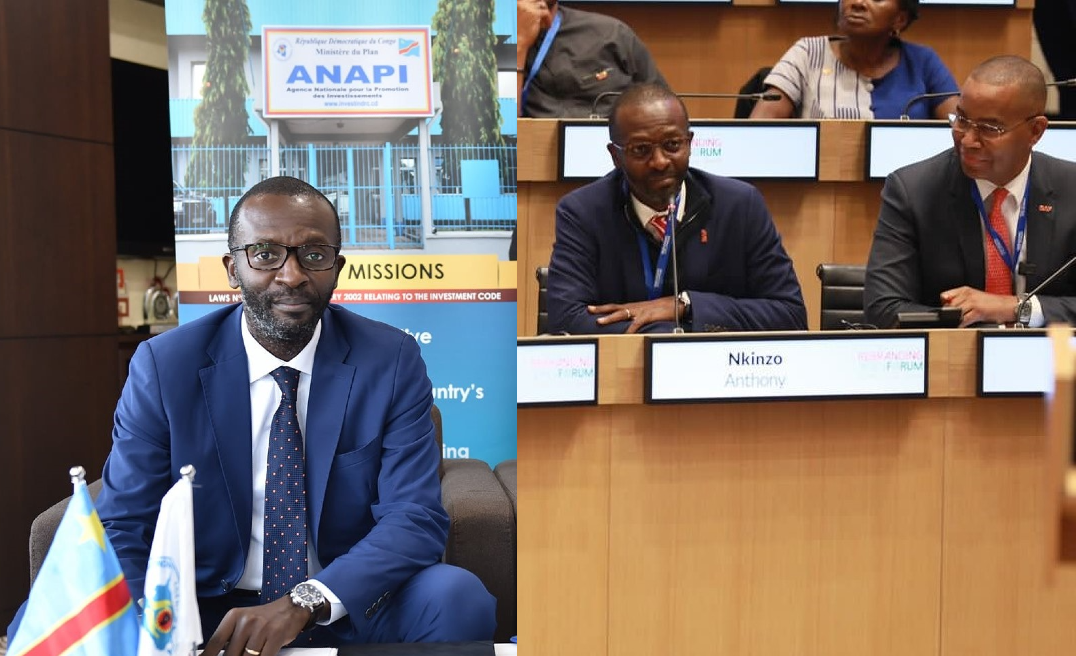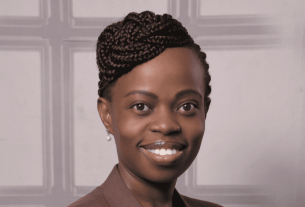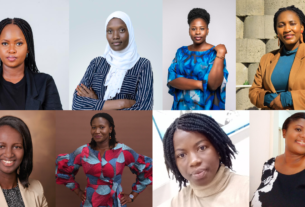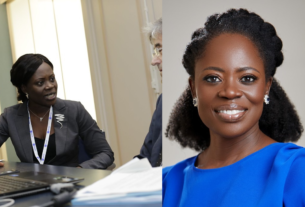Anthony Nkinzo is the Director General of the National Agency for Investment Promotion of the Democratic Republic of Congo (ANAPI). Since June 2022, he is the president of the International Network of French-speaking Investment Promotion Agencies (RIAFPI), which brings together more than 20 French-speaking countries in the world, including 17 African countries. He was in Brussels for the Rebranding Africa Forum, which took place from 20 to 21 October, and gave an interview to Africanshapers.
Since June 2022, you are the president of RIAFPI. What is this network?
The network brings together different French-speaking investment promotion agencies so that they can federate their potential and their ability to expand into other regions and within the French-speaking world. The network also aims to promote the different potentialities in this Francophone space. It is important to get out of our sovereignist shackles, in order to have a Francophone space that is a market with the same laws and the same regulation.
What are your priorities in this position?
When I took office, I set myself four priorities: first, the creation of an investment guarantee fund, because African countries have investment problems. This investment guarantee fund will ensure that French-speaking investment promotion agencies are in a position where they can move forward in terms of investment development. This investment guarantee fund also concerns SMEs which today have a big problem of access to financing.
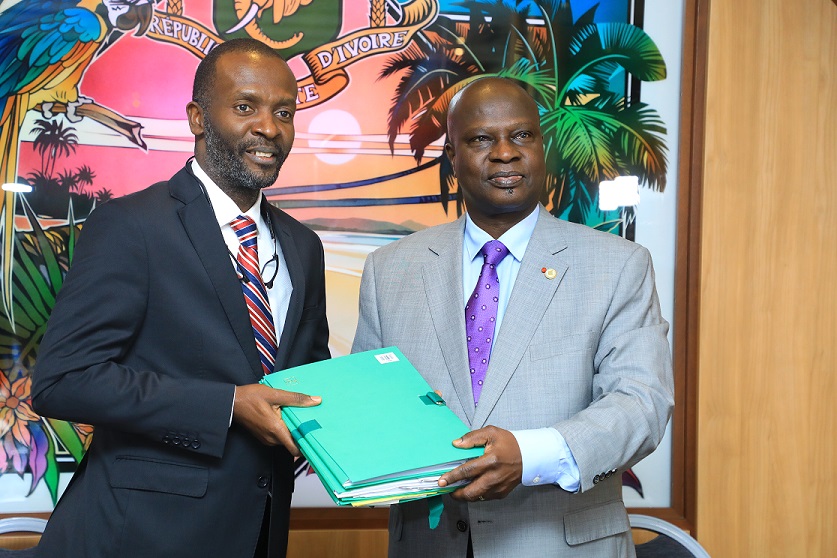
How much would this fund be?
The amount of the fund cannot be defined yet, because the different agencies will get together with the other donors. So I cannot limit myself to the question of the amount.
The second line of work would be the creation of a first school of excellence, so that it would be the crucible of an elite for the investment promotion agencies on questions of investment promotion techniques as a first component. The second component concerns SMEs for entrepreneurial issues. We want financial, entrepreneurial, technical and fundraising education for SMEs and very small businesses. In this school of excellence stamped RIAFPI, the conditions of access for IPAs will be totally different from other schools. We will promote the best of Africa. The realities of African countries are different from other countries. The techniques of investment promotion are also different.
The third axis is to make the IPAs important levers because of their reputation and their role in the ecosystem of the different countries. To do this, we must work closely with governments to have IPAs that play a fully important role in defining public policies.
The fourth axis consists in making RIAFPI an essential label thanks to the strength of the network.
What is your position on the project to create a pan-African investment promotion agency, in the context of the African continental free trade area (AfCFTA)?
The DRC has already joined the FTAA and we are following in the footsteps of the creation of a pan-African investment promotion agency. We simply have to make sure that there are adaptations to the laws of the different countries, their cultures and their ambitions. This pan-African agency must therefore take into account the appetites of the countries. Discussions on the creation of this agency began two or three years ago and are still ongoing. I recently exchanged views with my colleagues who met in Accra on the establishment of this pan-African agency and we will continue the discussions. When a reform is initiated, it encounters questions and existing conditions, in particular the fact that countries belong to sub-regional economic zones. Different countries should take stock of the bilateral treaties signed with other countries. Nevertheless, the pooling of efforts is an extremely important element because no one is sufficient on his own.
Francophone countries are increasingly aware of the importance of intra-African foreign direct investment (FDI). ANAPI has agreements with Morocco and, soon, with Tanzania. The objective is to develop intra-African FDI. These figures will be decisive in the years to come.
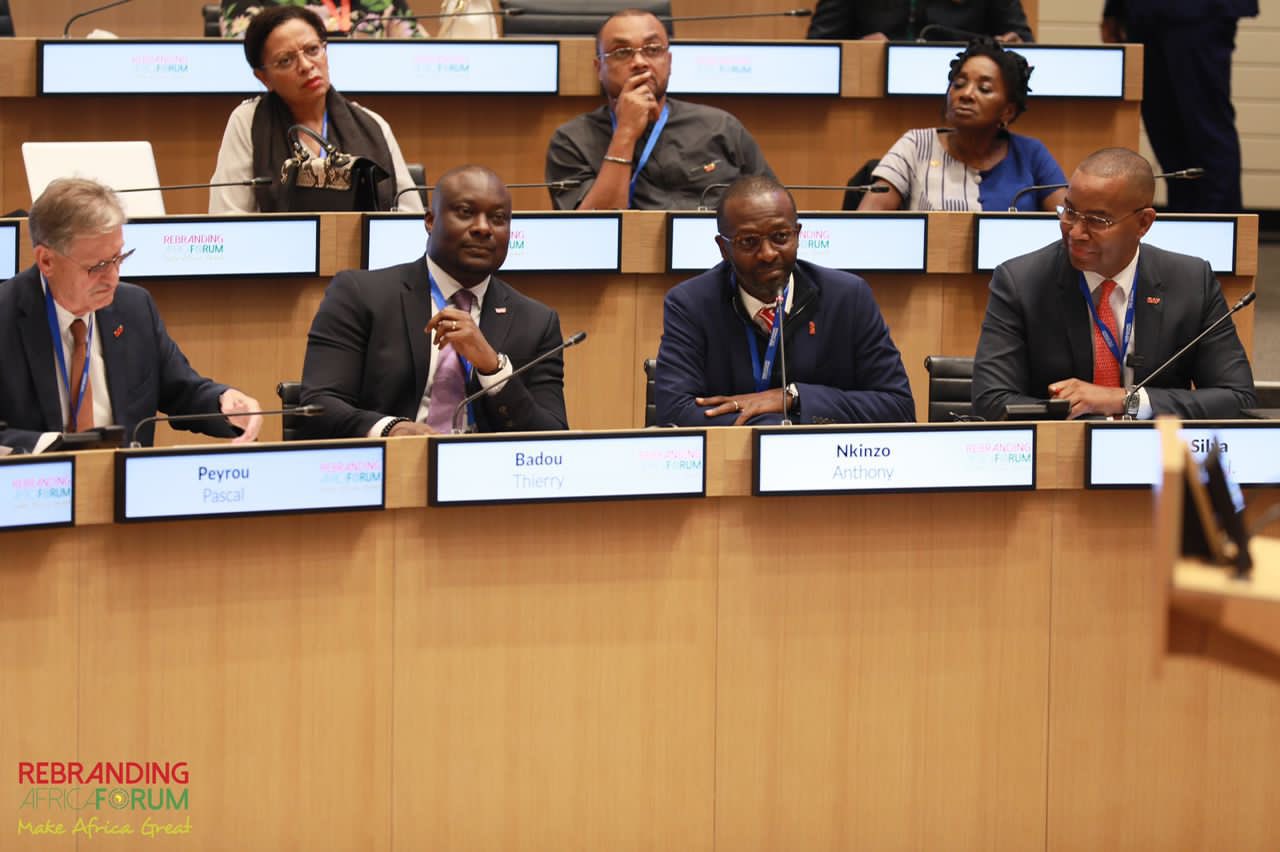
What is the level of foreign direct investment (FDI) in the DRC and what is the share of African investment?
According to the United Nations Conference on Trade and Development (UNCTAD), 80% of FDI comes from outside Africa and we only record between 10 and 15% of intra-African FDI. According to a recent report, the DRC is among the countries with the most resilient economies. In 2021, the amount of FDI was estimated at 1.6 billion USD. There has been a jump of 800 million, mainly driven by the mining sector, and also due to economic diversification. The ambition for the next few years is to increase this figure thanks to raw materials such as lithium, niobium, cobalt, coltan and the environment, the DRC being a solution country in terms of carbon dioxide absorption. Therefore, the respect of standards in the forestry industry will also create emulation. In addition, the tourism and agro-industry sectors are being set up. The industrial sector is also being structured with the ambitious 58 billion program. In view of these figures, the DRC is becoming increasingly attractive.
How many investment projects has ANAPI validated in the DRC in 2022 and 2021?
From 2003 to 2020, ANAPI has validated 1,163 projects, i.e. 58 billion usd in investment costs, and a little more than 200,000 jobs have been created over this period of almost 20 years. In 2022, we have already validated 250 projects, of which 70 to 80 are new projects, while the other projects are “slipping”, that is to say projects dating from 2021. The sectors concerned by these projects are agribusiness, real estate and hotels. At this stage, 10,000 jobs have been created. So, the investment code is attractive for economic operators.
Which countries invest the most in the DRC?
A multitude of countries invest in the DRC: China, Turkey, Belgium, the USA and Great Britain. The DRC is an attractive country.
How does ANAPI position itself in relation to the DRC’s membership of the East African community? What does this bring us in terms of investment?
The mutualization of efforts is extremely important. The DRC is open to regional groupings, while respecting the comparative advantages that exist between a regional grouping and our country. We need expertise, funds and manpower from elsewhere. We need to pool efforts to make us stronger, but without alienating issues of sovereignty.
The question of mutualization is linked to the formation of small and medium-sized enterprises to bring them up to speed. Local production must be high so that the DRC does not become a dumping ground. When competing with products from the East African community, DRC products must be preferred, which will increase exports and the balance of payments.
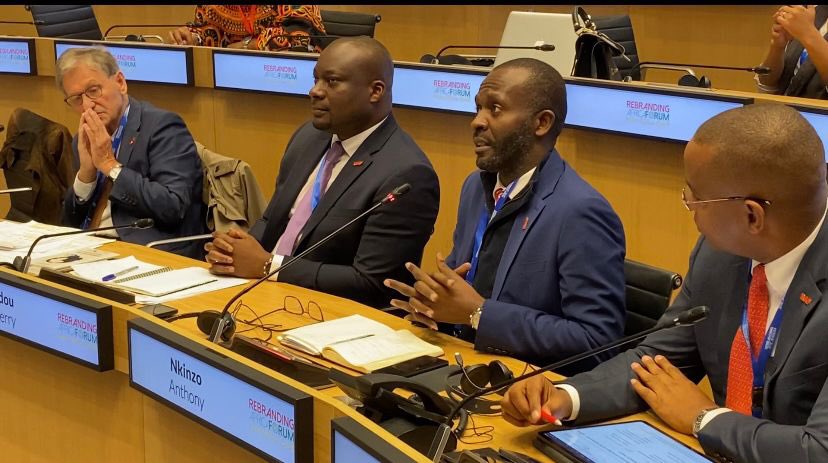
Today, Kenyans, for example, are increasingly present in the Congolese market, especially through the banks. Isn’t the risk of being a dumping ground already a reality?
It is a question of time and process. When you partner with a country that has not experienced wars and a period of instability as we have and that was in fact in the process of establishing its public policies, its economic fabric is always more developed.
The quality of innovation of startups, SMEs and even young Congolese will change the game in our country within two or three years. The DRC is not a dumping ground. Today, we have a protection of the local workforce with the law on subcontracting. In addition, we also have the law on entrepreneurship and the investment code. The local content is already in place and we will move forward.
What is the volume of investment by Congolese in Congo today?
Compared to the figures for 2003 and 2021, we are at less than 15% for SMEs. This is because there was a problem of financial education, entrepreneurial education, access to funds and a problem of courage, quite simply. But, for some time, there has been an awakening of consciousness. More and more Congolese are trying to get together in order to change the paradigm. In the great Equator there is now a special economic zone that is being given to a Congolese. We also have the economic operator Eric Monga who is building a dam and whose project I have approved under the investment code. In Tanganyika, an economic operator has built a hotel and I have also approved the project under the investment code. We have also approved projects of young people who are establishing small industries like soap factories. Something is happening. The pace is ours, even if it is not necessarily the same as the one of the person watching us.
What are your plans for ANAPI?
My ambition is to have a structure that is capable of setting up financial vehicles, that takes stakes in companies, that raises funds, that carries out feasibility studies and that makes available projects that it owns. We also aim to be a pool of statistics, to be a real gateway and a one-stop shop for investment, to be a federator of different structures that talk about investment issues and the business climate. A structure that is the secular arm of the President of the Republic in terms of investment. The future of the DRC will depend on what this structure will become.
Portrait of Anthony Nkinzo Kamole
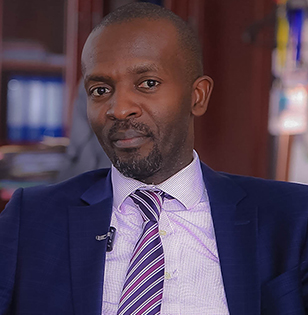
Anthony Nkinzo Kamole is the Director General of the National Agency for Investment Promotion of the Democratic Republic of Congo (ANAPI). Since June 2022, he is also the President of the International Network of Francophone Investment Promotion Agencies (RIAFPI). Anthony Nkinzo was an associate partner in charge of legal and tax matters at ABN Nzailu & Co. from February 2017 to July 2017. From January 2015 to December 2016 and from September 2012 to December 2014, he successively held the positions of Director of Cabinet at the Ministry of Portfolio and Director of Cabinet at the Vice-Primacy in charge of the Ministry of Budget.
Anthony Nkinzo was Tax & Legal Manager at PricewaterhouseCoopers in the DRC from April 2012 to June 2014, in charge of legal advice and tax assessment for multinational and local clients. From February 2007 to February 2012, he was Human Resources Business Partner at Nestlé Congo SPRL, where he implemented Nestlé’s internal policies in accordance with local labor regulations in the DRC. For 4 years, he also worked as a collection verification agent at the Directorate General of Taxes (DGI DRC), from December 2000 to February 2004.
Anthony Nkinzo holds a certification in Advanced General Management Studies from HEC Paris University (France), obtained in 2014. He has a law degree, option public international law from the University of Kinshasa, (class of 1999 to 2000), after his passage at the Catholic University of Bukavu from where he graduated.
Anthony NKINZO speaks Lingala, Swahili, French and English.
